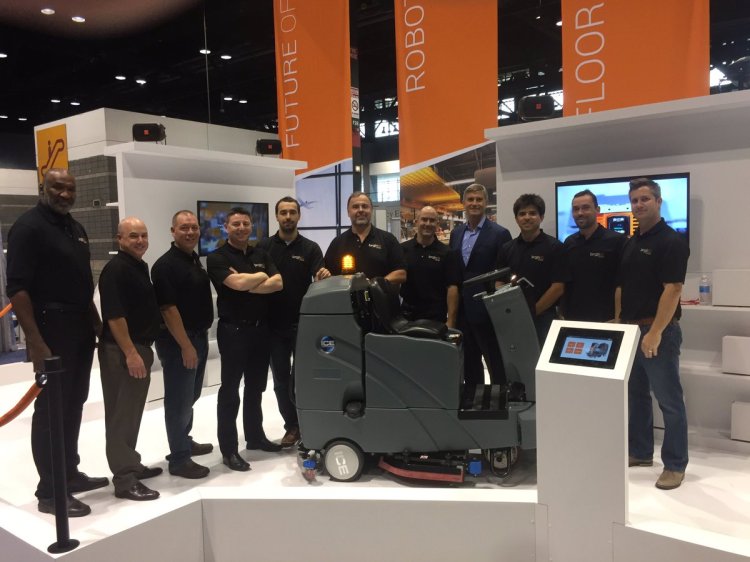Watch all the Transform 2020 sessions on-demand here.
Autonomous machines aren’t of much use without a management layer to orchestrate them. San Diego startup Brain Corp offers one such solution, dubbed BrainOS, which combines off-the-shelf hardware, sensors, and software to provide “brains” for industrial and commercial robots. And business is growing at a steady clip, evidenced last year by a $114 million funding round led by SoftBank’s Vision Fund and Qualcomm Ventures and a partnership with floor cleaning company Tennant.
Today, in another sign of Brain Corp’s expansive ambitions, the eight-year-old company announced that it has entered a relationship with Walmart to supply the retailer’s stores with artificial intelligence (AI) services.
This builds on a pilot program involving BrainOS-powered floor scrubbers in Walmart locations across the U.S. John Crecelius, Walmart’s vice president of central operations, said he expects to have 360 machines in stores by the end of January 31, 2019.
“We’re excited to work with Brain Corp in supporting our retail operations and providing our associates with a safe and reliable technology,” Crecelius said. “BrainOS is a powerful tool in helping our associates complete repetitive tasks so they can focus on other tasks within role and spend more time serving customers.”
June 5th: The AI Audit in NYC
Join us next week in NYC to engage with top executive leaders, delving into strategies for auditing AI models to ensure fairness, optimal performance, and ethical compliance across diverse organizations. Secure your attendance for this exclusive invite-only event.
BrainOS — the brainchild of computational scientists Dr. Eugene Izhikevich, who serves as CEO, and Dr. Allen Gruber, executive vice president — is tailored to the needs of original equipment manufacturers (OEMs) whose robots operate in fulfillment centers, airports, and big-box retailers like Walmart. To that end, its mapping and navigation algorithms are optimized for congested indoor locations with obstacles and tight corridors.
It’s scalable — BrainOS devices coordinate with one another over on-premises and cloud networks, downloading new configuration files and updates to the robots as they idle. And it’s relatively simple to deploy. A learn-by-demonstration feature “teaches” managed machines to perform tasks automatically based on manual operations.
One of Brain Corp’s flagship products is EMMA (Enabling Mobile Machine Automation), a prototypical showroom robot that packs sensors, cameras, 4G LTE connectivity, and routing algorithms that allow it to learn its way around a store quickly. It has been tested in Jimbo’s grocery stores around San Diego.
When Izhikevich spoke to VentureBeat this fall, he said the bulk of the company’s current work is focused on getting BrainOS deployed on Qualcomm Snapdragon mobile chips. Brain Corp also intends to partner with robotics startups to “expand [BrainOS] into applications beyond floorcare” — specifically in the areas of materials handling and store operations.
“We are thrilled to partner with Walmart to enhance customer experience at its retail locations,” Izhikevich said. “BrainOS technology allows robots to effectively and safely function in complex, crowded environments, ensuring increased productivity and efficiency across applications. We look forward to continuing to work alongside Walmart to help build intelligent, connected stores.”
Brain Corp previously raised $11 million, and it employs a staff of more than 200 people.


